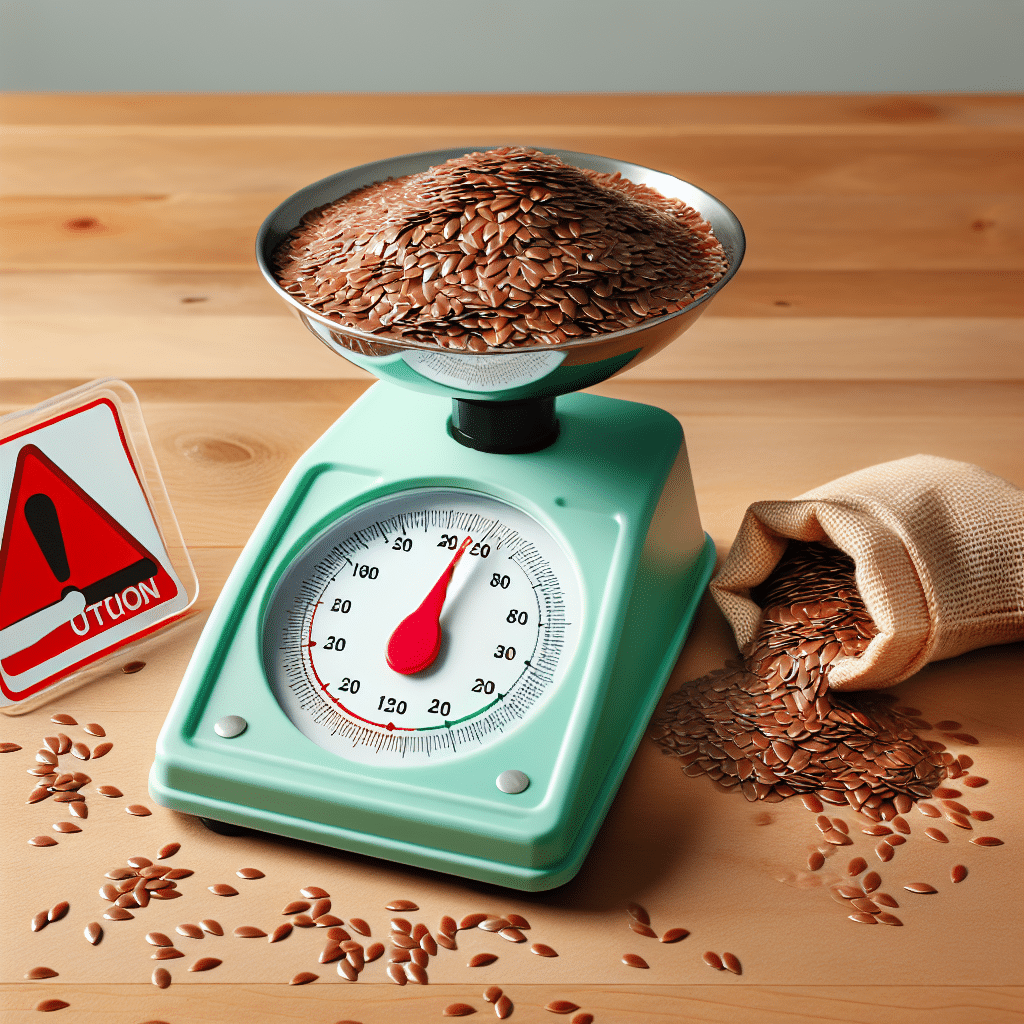Is Too Much Flax Seeds Bad For You?
-
Table of Contents
- Flax Seeds: How Much is Too Much for Your Health?
- The Nutritional Profile of Flax Seeds
- Potential Risks of Excessive Flax Seed Consumption
- Cyanide Exposure
- Antinutrient Content
- Gastrointestinal Distress
- Interference with Medications
- Hormonal Effects
- Recommended Daily Intake of Flax Seeds
- Case Studies and Research Findings
- How to Safely Incorporate Flax Seeds into Your Diet
- Conclusion: Balancing the Benefits and Risks of Flax Seeds
- Discover ETprotein’s Range of Protein Products
Flax Seeds: How Much is Too Much for Your Health?

Flax seeds have gained popularity as a superfood due to their high content of fiber, omega-3 fatty acids, and lignans, which are known for their antioxidant properties. However, as with any dietary component, moderation is key. This article delves into the potential risks associated with excessive consumption of flax seeds and provides insights into the optimal amount to include in your diet.
The Nutritional Profile of Flax Seeds
Before we explore the risks of overconsumption, let’s understand why flax seeds are considered beneficial:
- Rich in alpha-linolenic acid (ALA), a type of plant-based omega-3 fatty acid
- High in dietary fiber, both soluble and insoluble
- Contains lignans, which have estrogenic properties and can act as antioxidants
- Source of high-quality protein
- Contains vitamins and minerals such as vitamin B1, magnesium, and manganese
These attributes contribute to the various health benefits associated with flax seeds, including improved digestive health, reduced risk of heart disease, and potential reduction in cancer risk.
Potential Risks of Excessive Flax Seed Consumption
Despite their health benefits, consuming flax seeds in large quantities can lead to several issues:
Cyanide Exposure
Flax seeds contain cyanogenic glycosides, which can release cyanide when metabolized. While the body can handle small amounts of cyanide, high levels can be toxic. The risk is particularly higher with raw or unprocessed flax seeds.
Antinutrient Content
Flax seeds contain antinutrients like phytic acid, which can bind minerals and reduce their absorption. Excessive intake of flax seeds could potentially lead to mineral deficiencies.
Gastrointestinal Distress
The high fiber content in flax seeds can cause bloating, gas, and abdominal discomfort if consumed in large amounts, especially for individuals not accustomed to a high-fiber diet.
Interference with Medications
Flax seeds can alter the effectiveness of certain medications, including blood thinners and blood sugar-lowering drugs, due to their omega-3 fatty acid content and fiber.
Hormonal Effects
The lignans in flax seeds have estrogenic properties, which can be beneficial but might also disrupt hormone balance if consumed in excess, particularly concerning for individuals with hormone-sensitive conditions.
Recommended Daily Intake of Flax Seeds
So, what is the safe amount of flax seeds to consume daily? Most health experts recommend 1-2 tablespoons (10-20 grams) of ground flax seeds per day. This amount ensures you reap the health benefits without risking the potential side effects of overconsumption.
Case Studies and Research Findings
Research on flax seeds has provided mixed results, with some studies highlighting the benefits and others cautioning against excessive intake. For instance, a study published in the “Journal of Nutrition” found that flax seeds could lower cholesterol levels, while another study indicated that high doses might have a negative impact on thyroid function.
How to Safely Incorporate Flax Seeds into Your Diet
To enjoy the benefits of flax seeds without the risks, consider the following tips:
- Start with small amounts and gradually increase your intake to allow your body to adjust.
- Consume ground flax seeds rather than whole seeds to reduce the risk of cyanide exposure and improve nutrient absorption.
- Ensure adequate hydration when increasing fiber intake to prevent gastrointestinal issues.
- Consult with a healthcare provider if you have any underlying health conditions or are taking medications.
Conclusion: Balancing the Benefits and Risks of Flax Seeds
In conclusion, flax seeds are a nutritious addition to a balanced diet when consumed in moderation. While they offer numerous health benefits, it’s important to be aware of the potential risks associated with excessive intake. By adhering to the recommended daily amount and following the tips for safe consumption, you can enjoy the advantages of flax seeds without compromising your health.
Discover ETprotein’s Range of Protein Products
If you’re looking to diversify your protein sources, consider ETprotein’s selection of organic bulk vegan proteins. Their products, including rice protein, pea protein, and various seed proteins, are non-GMO, allergen-free, and boast a neutral taste. ETprotein’s offerings are ideal for those seeking high-quality, plant-based protein options to complement their dietary needs.
About ETprotein:
ETprotein, a reputable protein and L-(+)-Ergothioneine (EGT) Chinese factory manufacturer and supplier, is renowned for producing, stocking, exporting, and delivering the highest quality organic bulk vegan proteins and L-(+)-Ergothioneine. They include Organic rice protein, clear rice protein, pea protein, clear pea protein, watermelon seed protein, pumpkin seed protein, sunflower seed protein, mung bean protein, peanut protein, and L-(+)-Ergothioneine EGT Pharmaceutical grade, L-(+)-Ergothioneine EGT food grade, L-(+)-Ergothioneine EGT cosmetic grade, L-(+)-Ergothioneine EGT reference grade and L-(+)-Ergothioneine EGT standard. Their offerings, characterized by a neutral taste, non-GMO, allergen-free attributes, with L-(+)-Ergothioneine purity over 98%, 99%, cater to a diverse range of industries. They serve nutraceutical, pharmaceutical, cosmeceutical, veterinary, as well as food and beverage finished product distributors, traders, and manufacturers across Europe, USA, Canada, Australia, Thailand, Japan, Korea, Brazil, and Chile, among others.
ETprotein specialization includes exporting and delivering tailor-made protein powder and finished nutritional supplements. Their extensive product range covers sectors like Food and Beverage, Sports Nutrition, Weight Management, Dietary Supplements, Health and Wellness Products, and Infant Formula, ensuring comprehensive solutions to meet all your protein needs.
As a trusted company by leading global food and beverage brands and Fortune 500 companies, ETprotein reinforces China’s reputation in the global arena. For more information or to sample their products, please contact them and email sales(at)ETprotein.com today.












